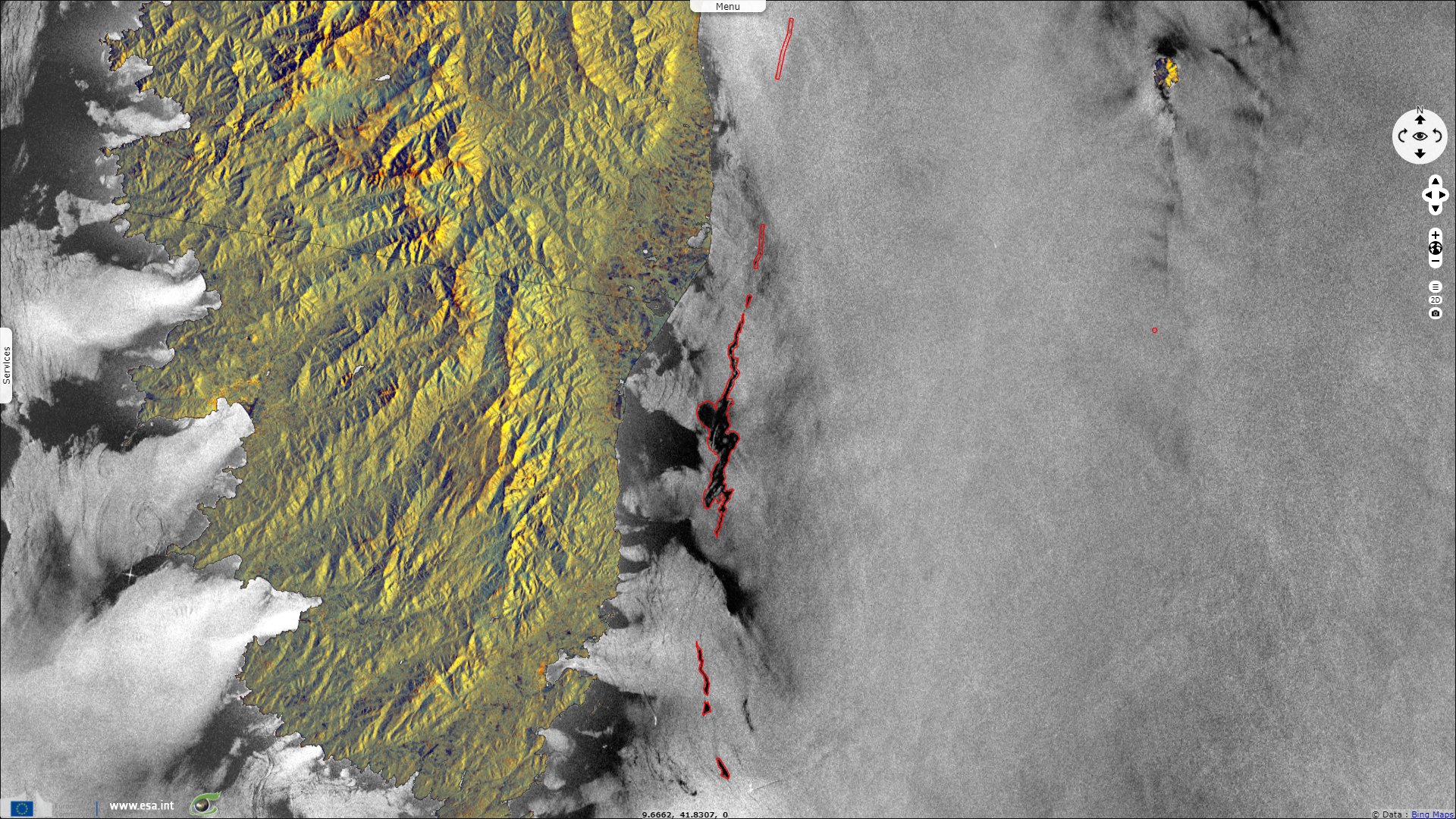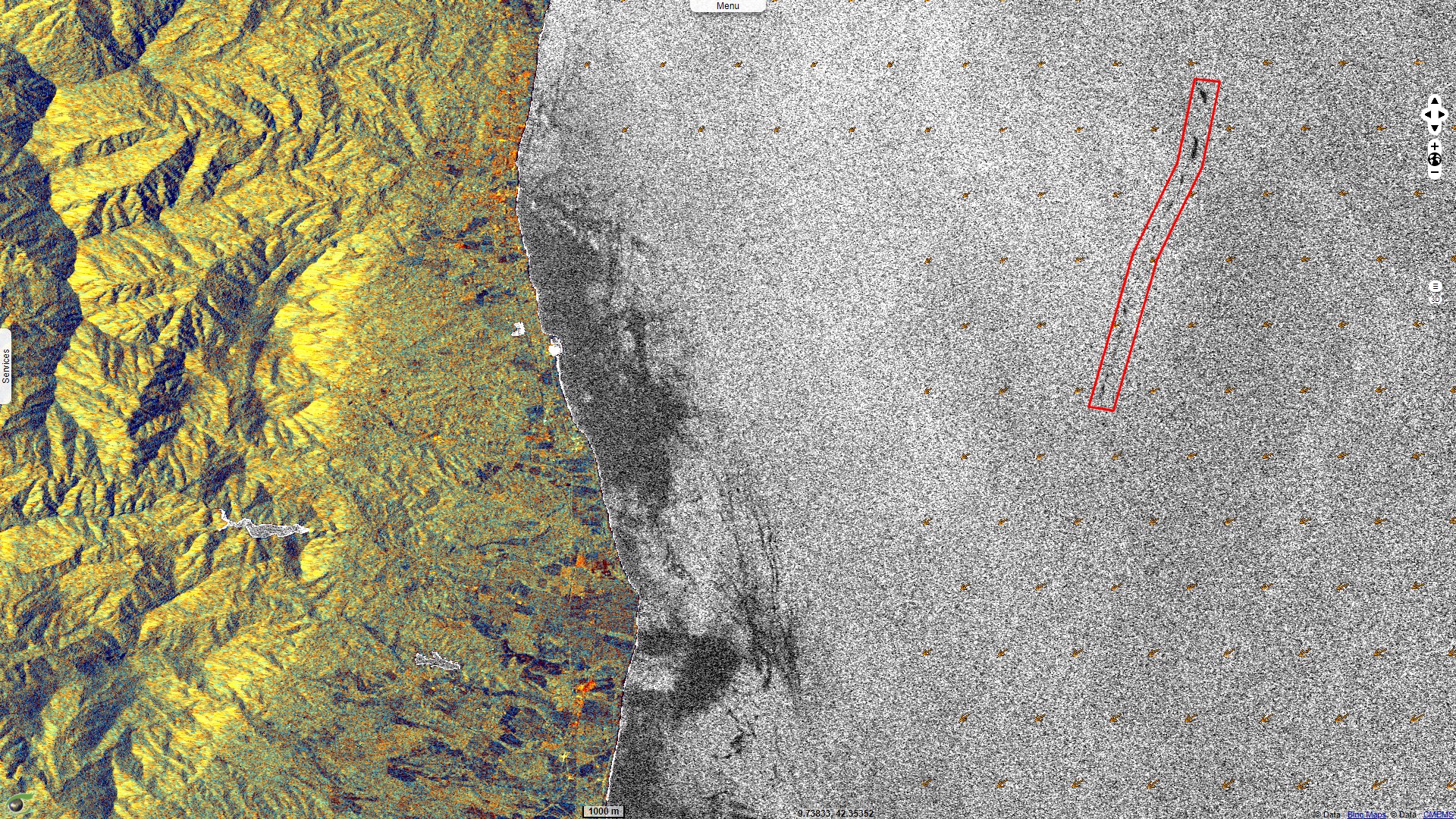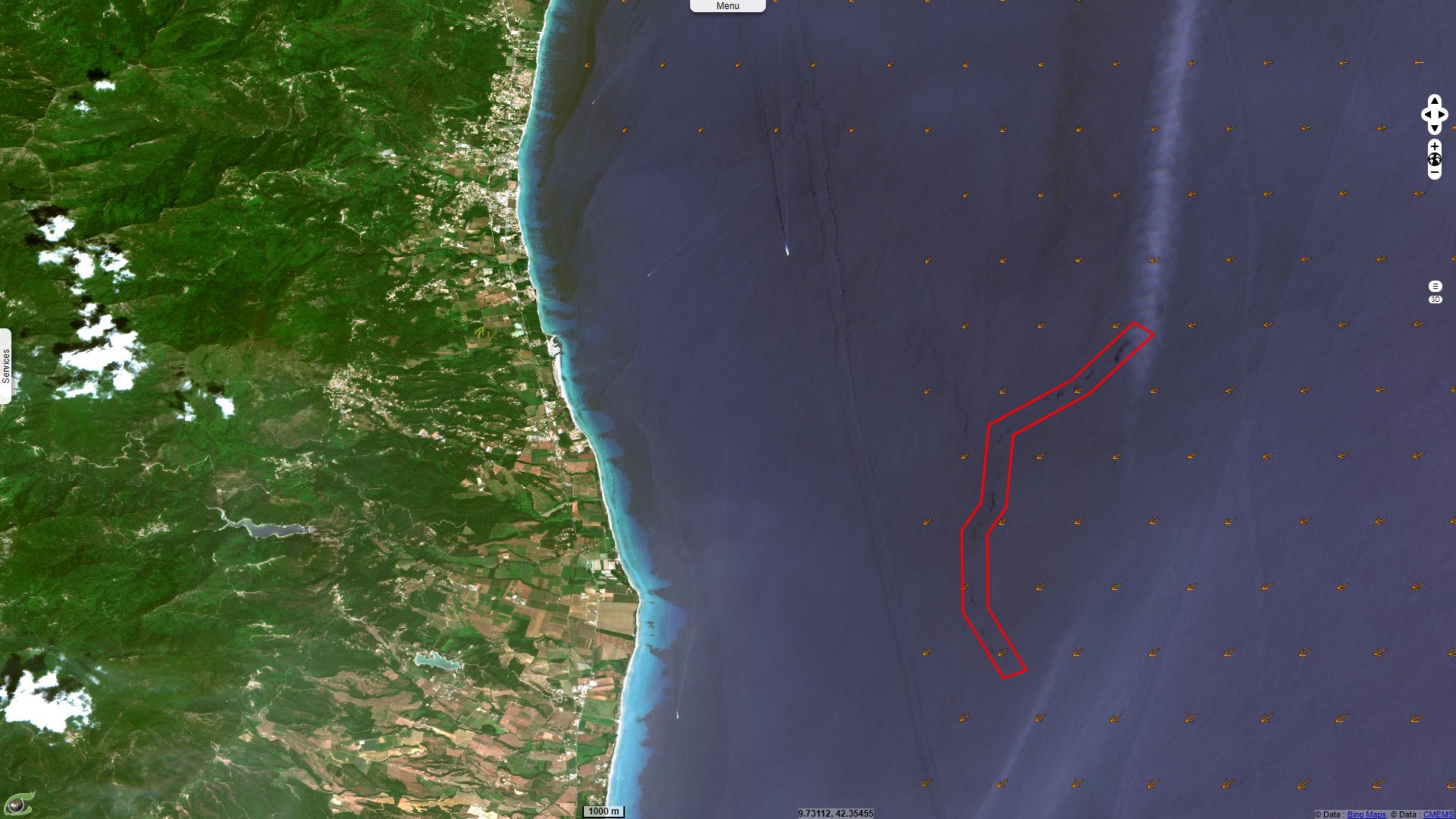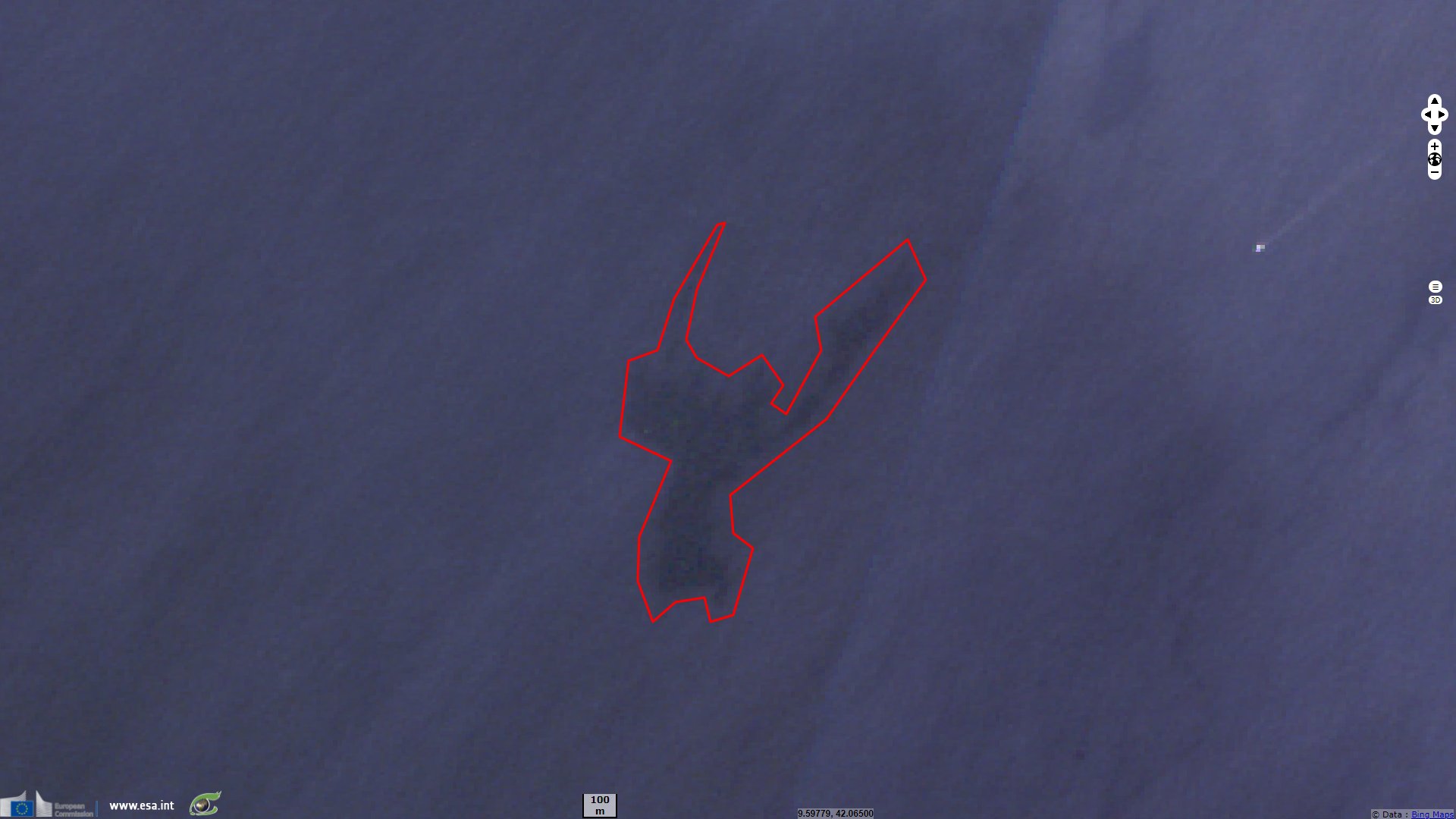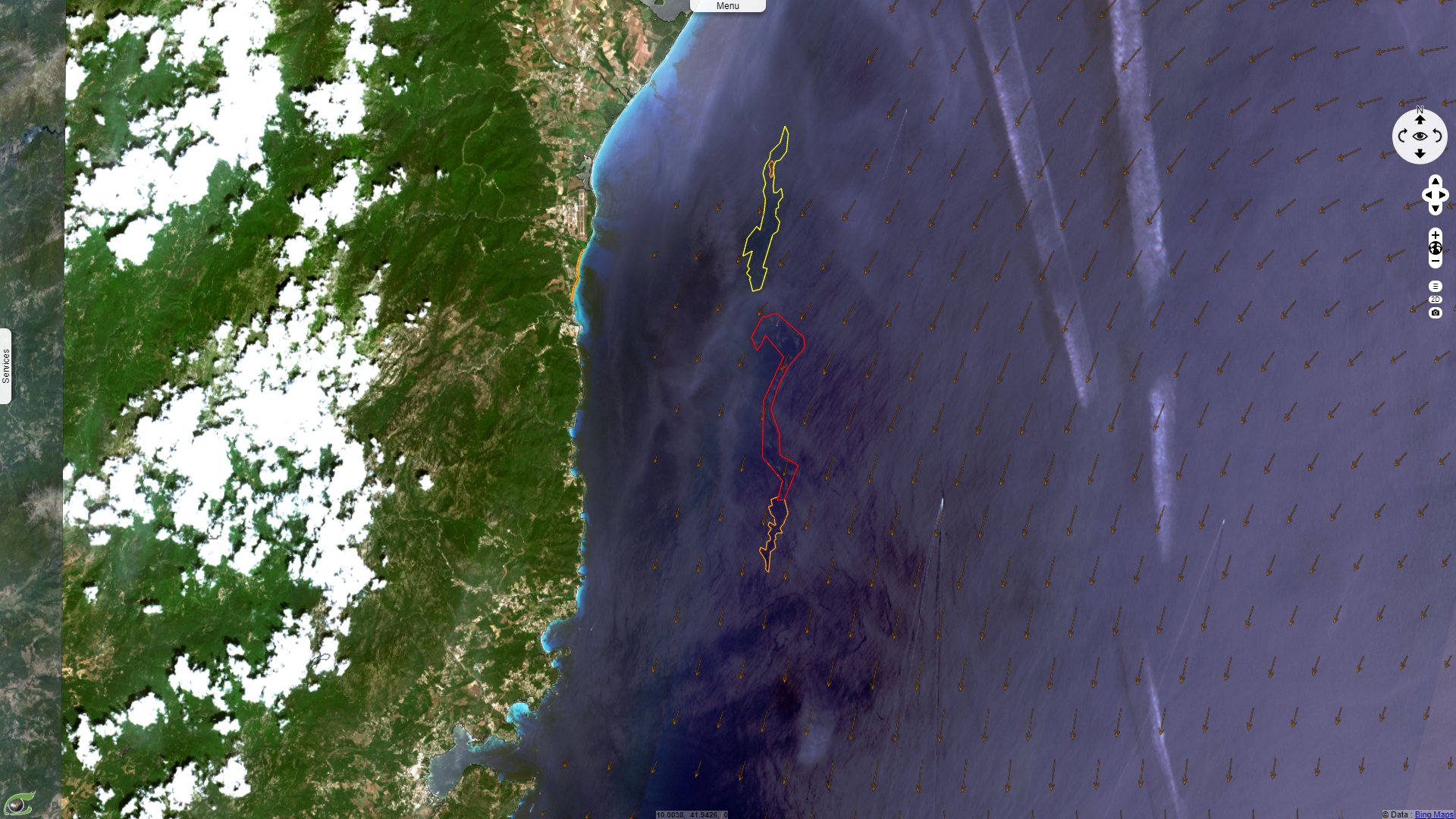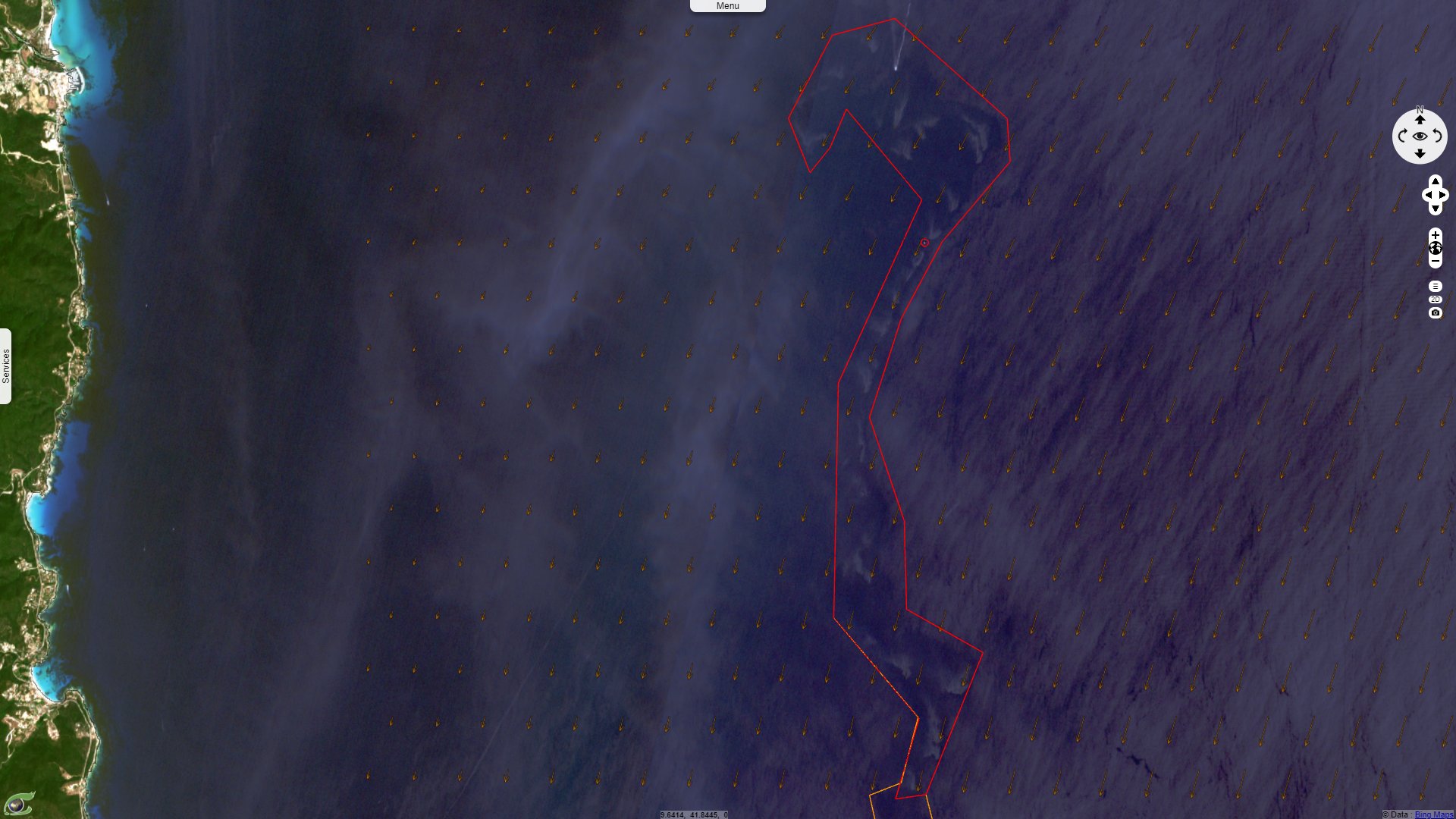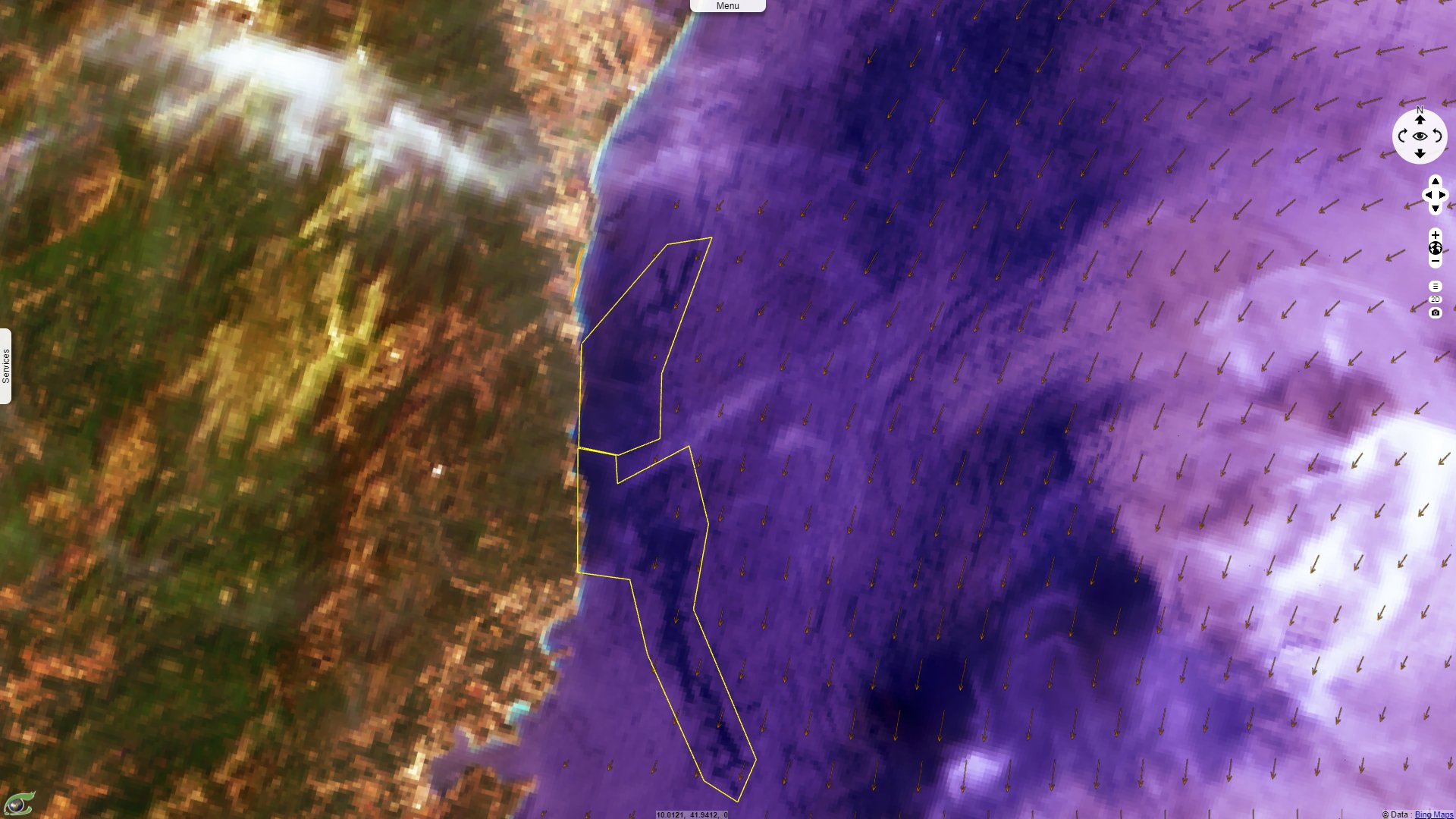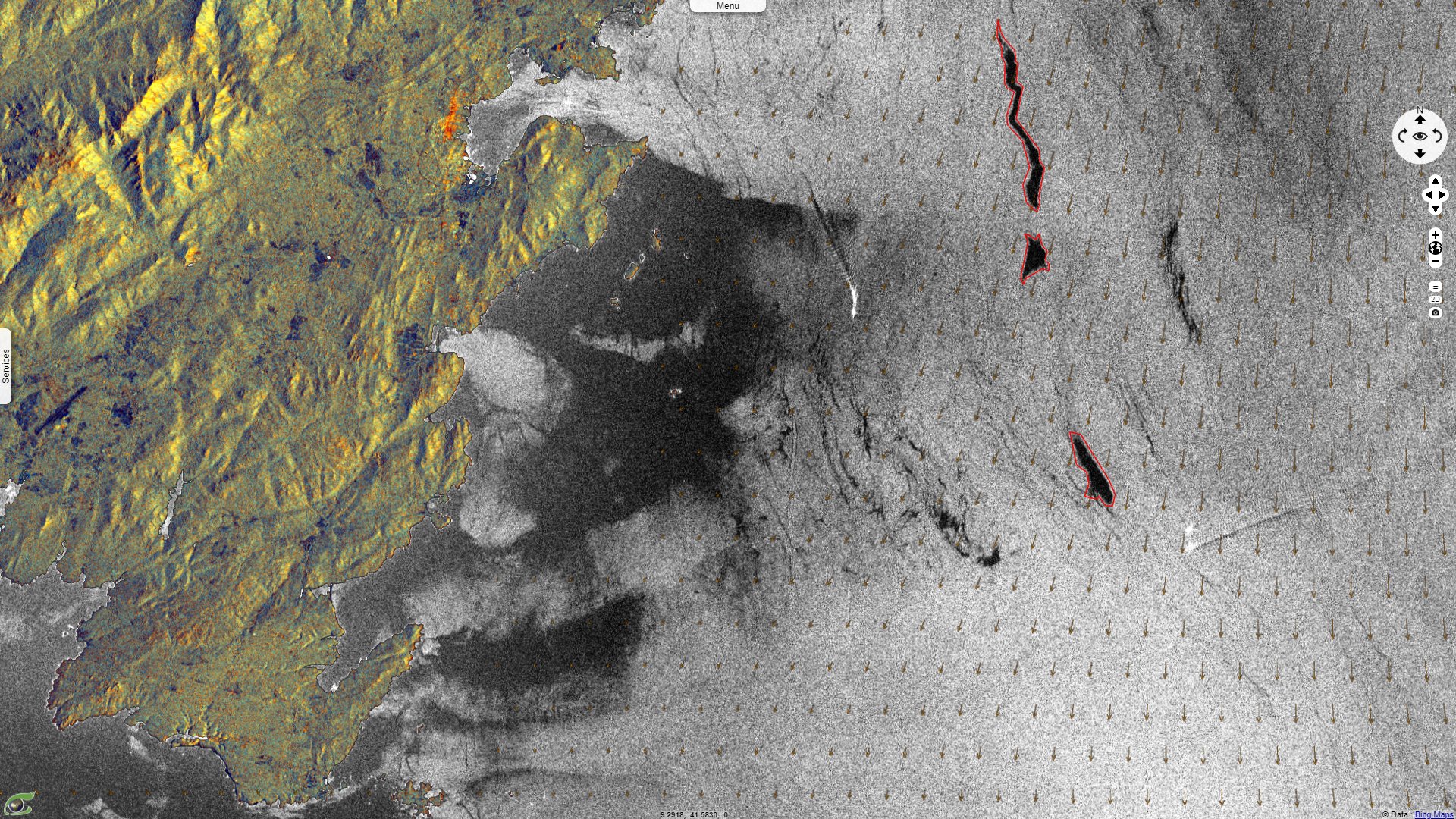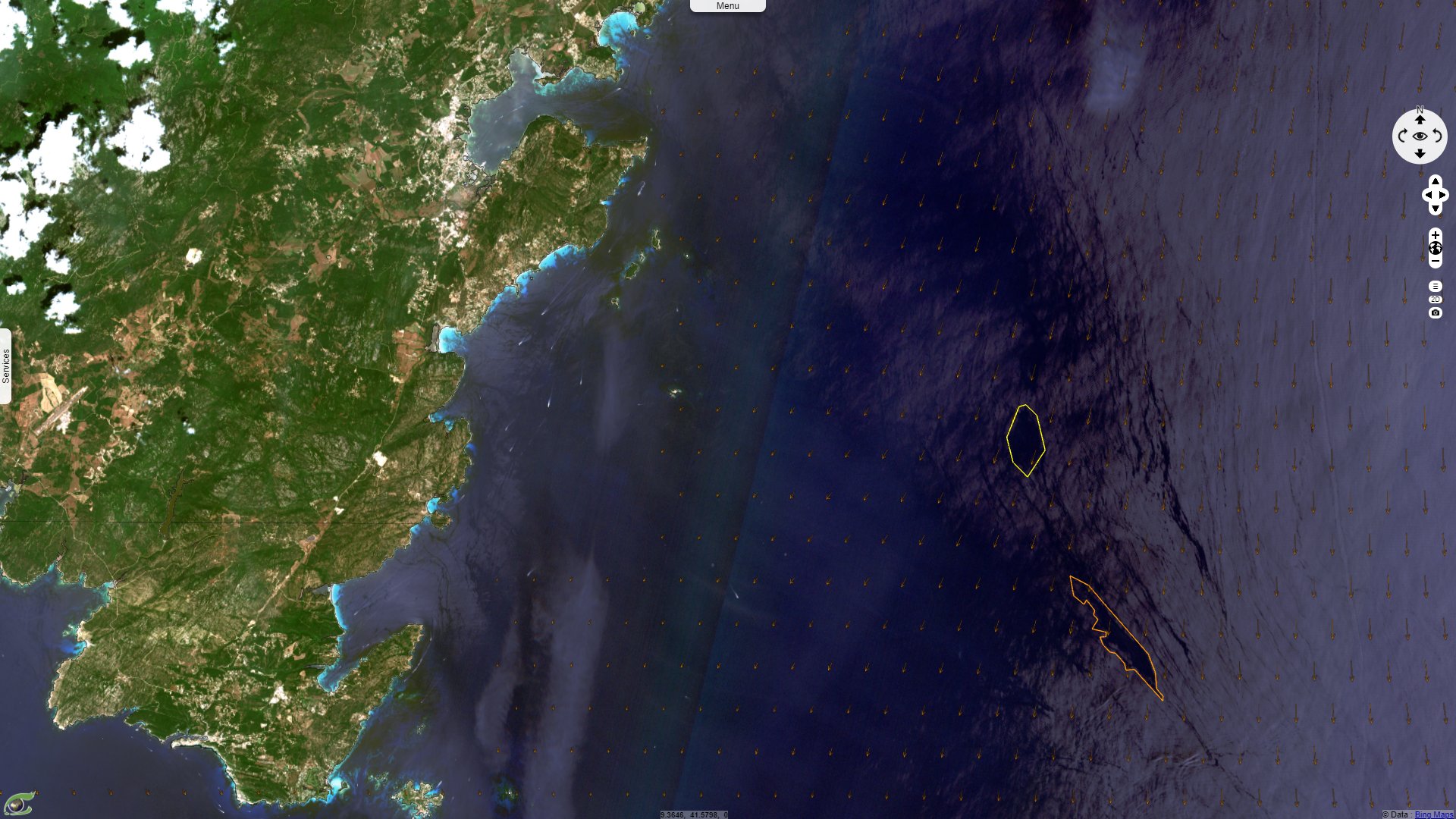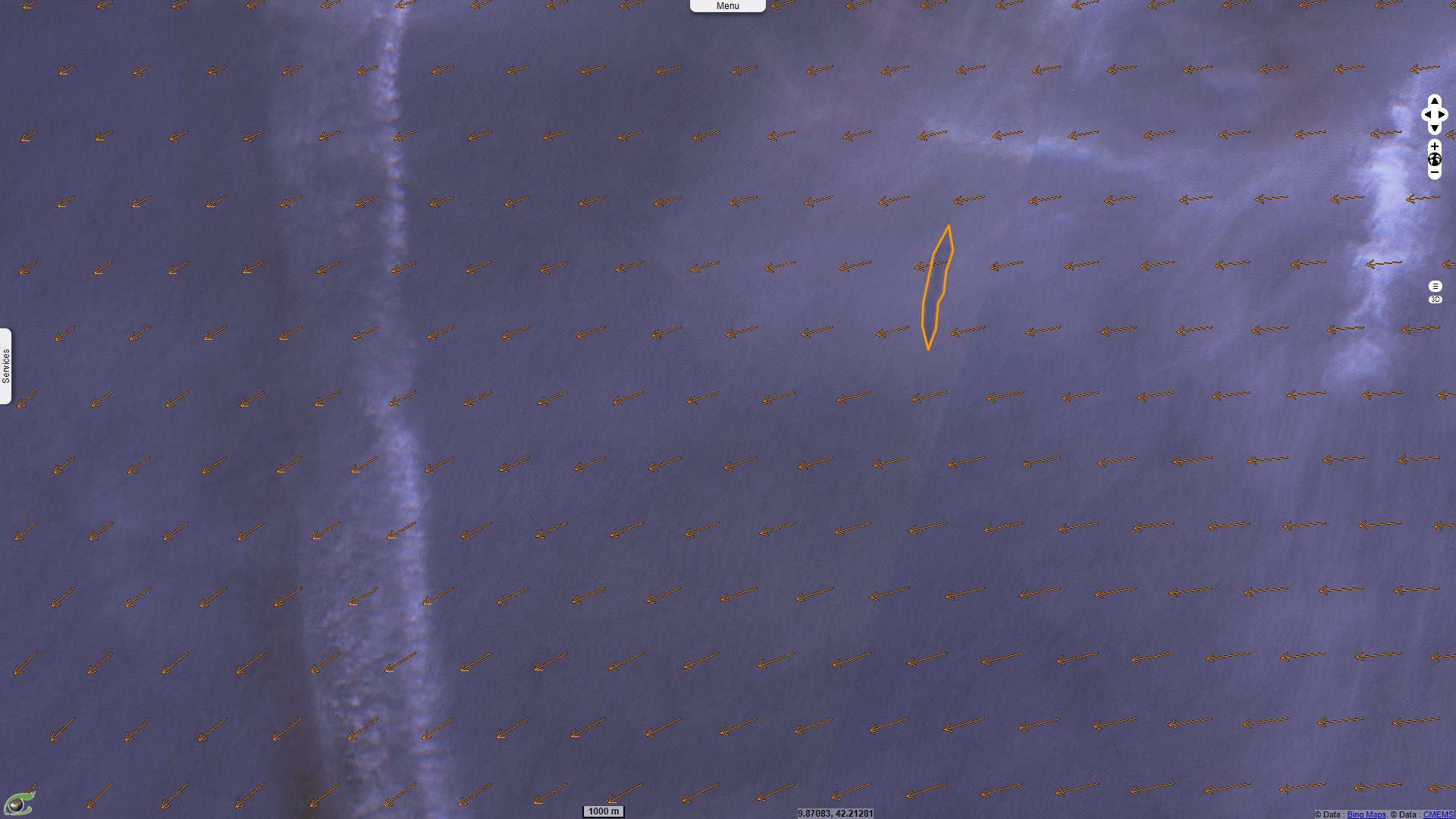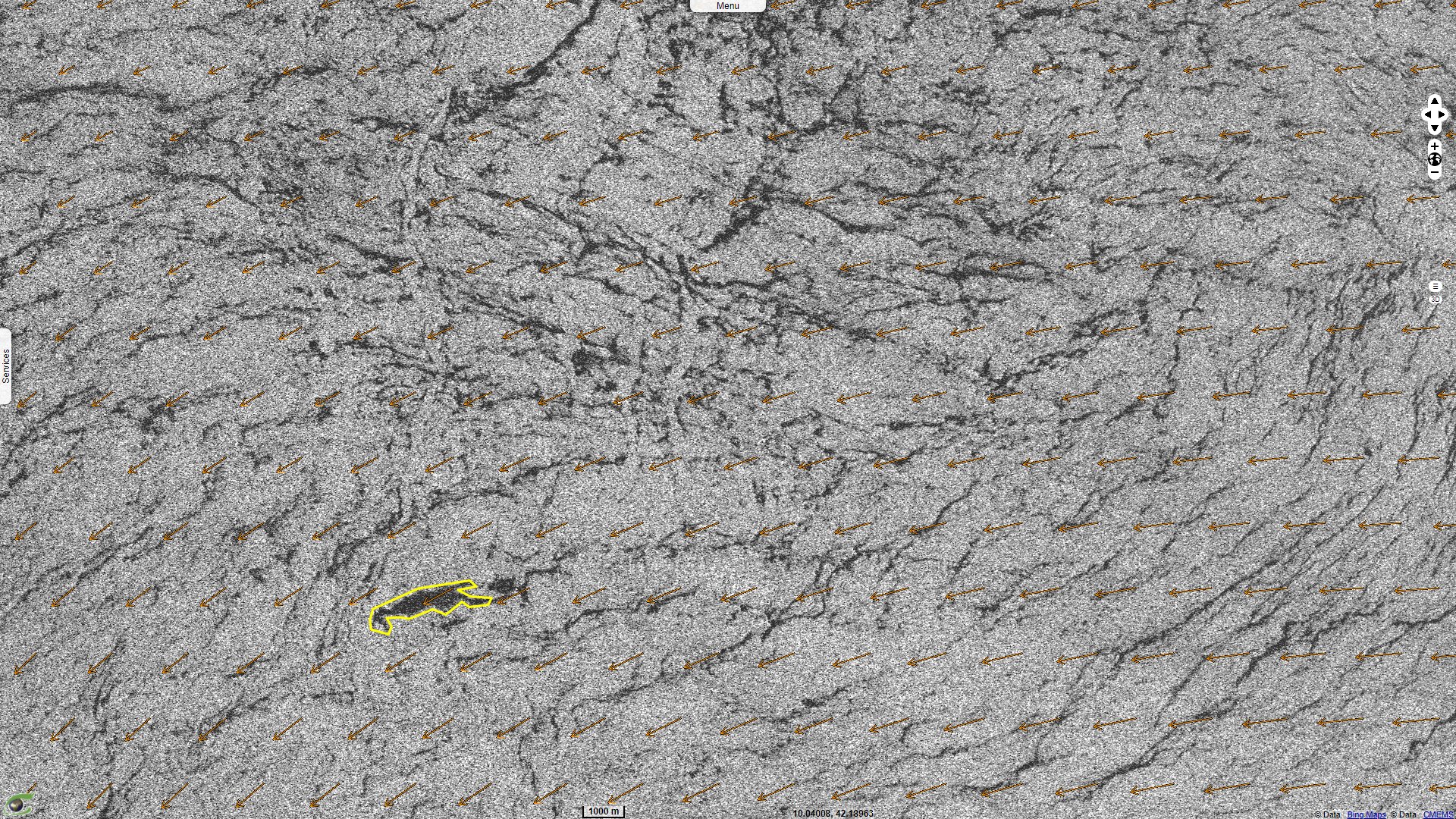Ship discharge causes a large oil slicks east of Corsica
Sentinel-1 CSAR IW acquired on 12 June 2021 from 05:27:30 to 05:27:55 UTC
Sentinel-2 MSI acquired on 12 June 2021 at 10:10:31 UTC
Sentinel-3 OLCI FR acquired on 13 June 2021 from 09:15:07 to 09:54:32 UTC
Sentinel-1 CSAR IW acquired on 13 June 2021 from 17:13:21 to 17:13:46 UTC
Sentinel-2 MSI acquired on 12 June 2021 at 10:10:31 UTC
Sentinel-3 OLCI FR acquired on 13 June 2021 from 09:15:07 to 09:54:32 UTC
Sentinel-1 CSAR IW acquired on 13 June 2021 from 17:13:21 to 17:13:46 UTC
Keyword(s): Oil spill, pollution, marine environment, emergency, man-made disaster, ship, Corsica, France, Mediterranean Sea
"During a training exercise on Friday 11 July, pilots from the French Navy's base in Corsica spotted a 35 km slick floating about 10 km off the coast", wrote the Maritime Exclusive, prompting concerns that it might drift ashore on the island's well-known beaches. Phys.org completes the following day "By Saturday, officials had detected two large slicks stretching over 35 kilometres, one 800 metres offshore, the other 3.5 kilometres." The French Customs vessel Libecciu confirmed the spill and took samples of the waste for analysis.
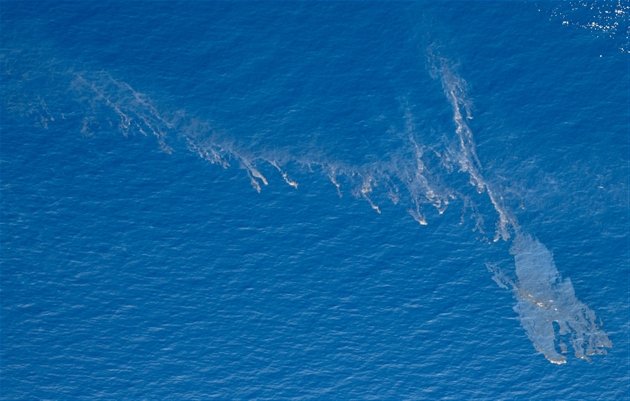
The same oil slick observed by air - Source: French air force
According to the BBC: "Pollution experts said the spill was heavy-grade oil and probably the result of degassing. This is when any gases left in the fuel tanks or crude oil tanks have been released after they have been emptied.", which is coherent with the satellite images. The Maritime Exclusive adds: "France's minister of the sea, Annick Girardin, told FranceInfo that officials are certain that the long line of heavy oil was intentionally discharged by a vessel. 'It is most certainly a [discharge], there are few doubts, it is a malicious act. We are three hours from a port, all this probably to save a few thousand euros. So they are thugs of the sea, that's how I want to [describe] them,' said Girardin. Girardin confirmed that 21 suspect vessels have been identified, including three ships that are of particular interest." Prosecutor Dominique Laurens said France's maritime gendarmerie had opened an investigation.
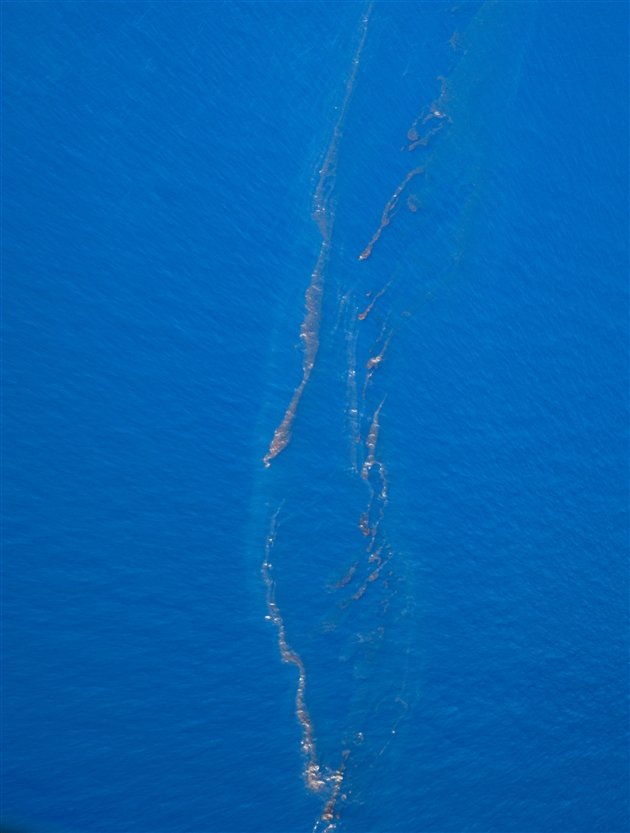
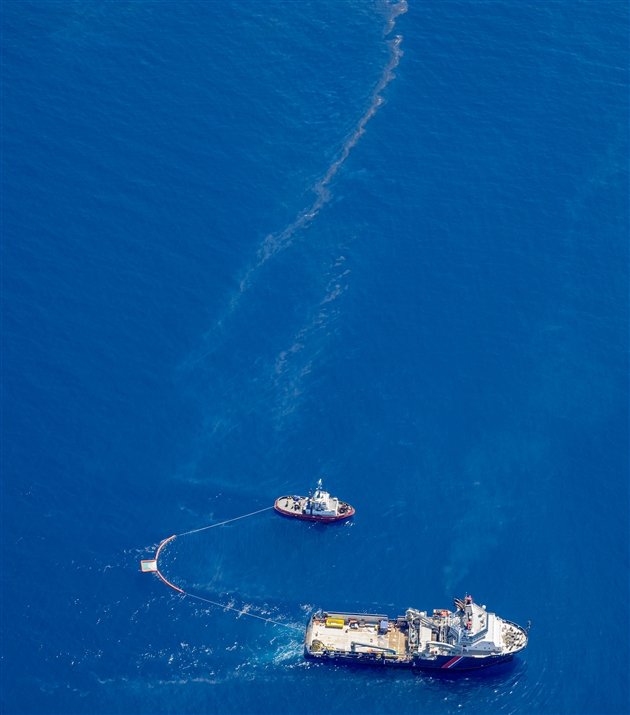
Left: air view of the brown bodies surrounded by bright sheen; Right: 3 to 4 tons of oil have been caught before it reached the coast - Source: French air force
"The French Maritime Prefecture of the Mediterranean (Premar Mediterranee) brought in a helicopter and multiple pollution response vessels to clean up the spill, including the French Navy tugs Pionnier, Jason and the offshore tug Altagna", equipped with 'anti-pollution material and specialised staff', said the Maritime Exclusive.
Phys.org adds "some 80 members of the security forces and rescue services were also being drafted in to aid with any clean-up."
"Over the weekend, French authorities closed beaches along a 35 km stretch of Corsica's coastline and issued a temporary fishing ban in anticipation of the spill's landfall. However, on Sunday [13], the spill broke up into multiple sections and changed course, drifting slowly away from shore." "The spill recovery operation has collected about four tons of oil, she said, and operations will continue during daylight to abate the remaining oil on the surface. Girardin expressed concern that the heaviest fractions of the oil will sink and come back later to pollute Corsica's shores. 'There is the risk all the same in the days to come, and even perhaps this summer, to find pellets which would arrive on the coast, because the temperature is heating up and it is rising to the surface', she said." report the Maritime Exclusive.
Discharging untreated oily waste is an unlawful cost-saving practice, and it has been banned since MARPOL entered into force in 1983. However, it still occurs on a regular basis, and is periodically discovered aboard the vessels of high-profile players as well as less prominent firms. Indian government researchers have suggested that intentional discharges from tankers are so common in the Arabian Sea that they are a source of chronic tarball pollution on the shores of Goa. Penalties and enforcement mechanisms vary. In the United States, a suspected oily water discharge or a falsified oil record book will generally be referred to a federal prosecutor, resulting in criminal charges. In other locales, a suspicious oil record book might merit a port state control deficiency.
